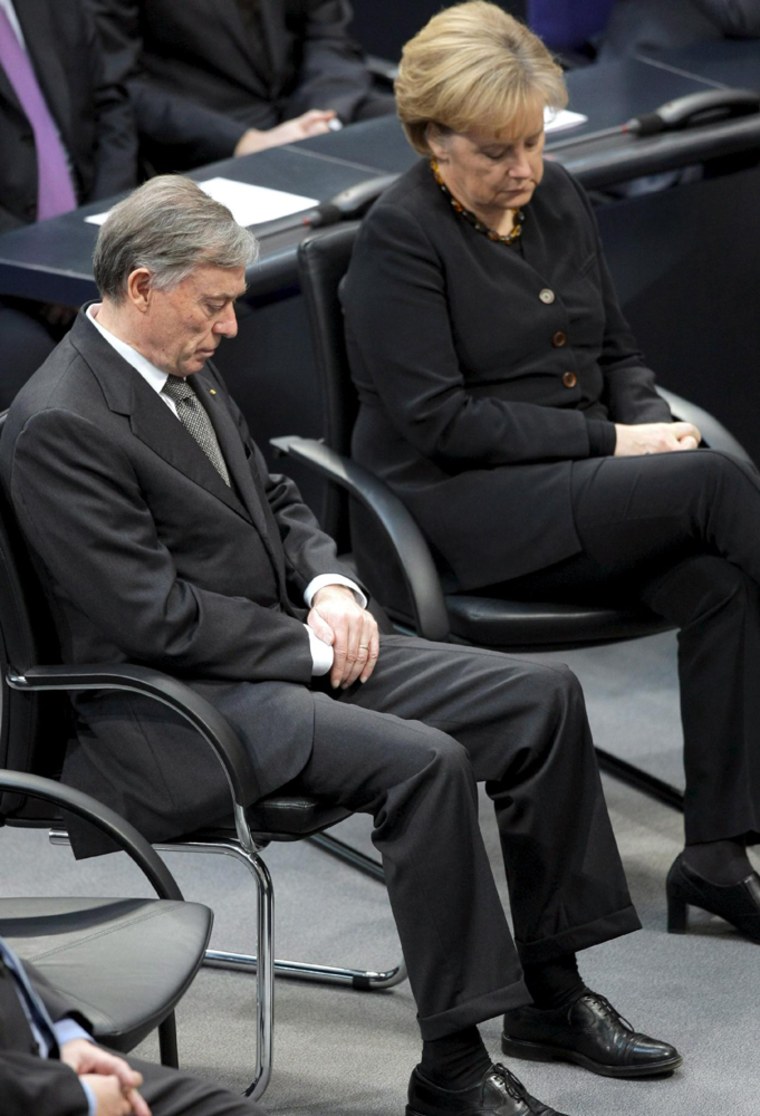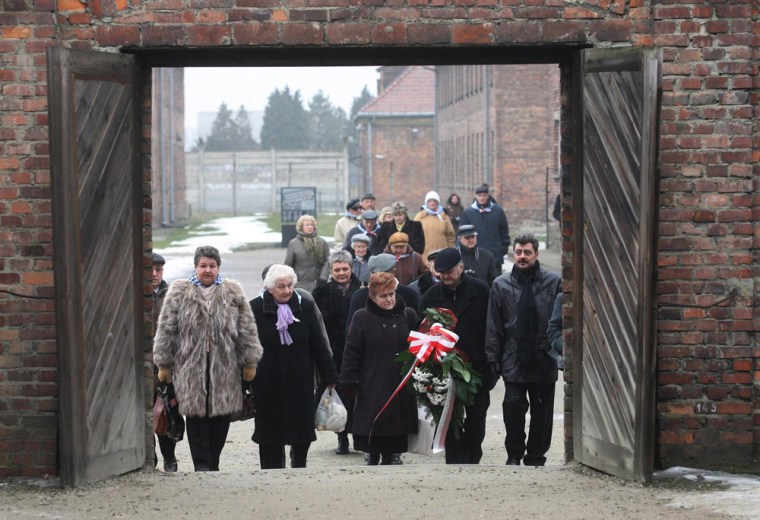Dozens of survivors marked the 64th anniversary of the Soviet liberation of Auschwitz by remembering the Nazi death camp's horrors and celebrating the acts of humanity or random chance that kept them alive.
More than 1 million people, mostly Jews, died in Auschwitz's gas chambers or through forced labor, disease or starvation. The anniversary of its liberation has been established as an annual Holocaust remembrance day by the United Nations.
Bronislawa Horowitz-Karakulska, 78, said Tuesday that she credited her survival to destiny — and to Oskar Schindler, the German industrialist whose story was told in Steven Spielberg's "Schindler's List." He shielded more than 1,000 Jews from Nazi camps by hiring them to work in his factories.
"The fact that I am alive — for this I thank Oskar Schindler and the fact that he was able to get me and 300 women out of here," Horowitz-Karakulska said, speaking to a group of high-school students in a school gymnasium in the southern Polish town of Oswiecim — which the German occupiers called Auschwitz.
Survivor Tadeusz Sobolewicz, 85, accused Germany's younger generations of forgetting about the horrors their country inflicted, and misrepresenting history by playing up their own suffering.
"The columns of many Western newspapers are full of information about the sufferings of the German people, the underground struggle against Hitler, the assassination attempts against him, and so on," he said.
'Part of the German identity'
But in a speech to Germany's parliament, President Horst Koehler praised young Germans' efforts to learn about their nation's history and honor the victims of the Holocaust.
"Responsibility for the Shoah is part of the German identity," Koehler in a speech to parliament.

In Warsaw, an antique tram car topped with the Jewish Star of David traveled empty through the now-bustling streets of the Polish capital and neighborhoods in what was once the Jewish ghetto of Nazi-occupied Warsaw to symbolize the absence of those who perished in the Holocaust.
Italian lawmakers in Rome observed a minute of silence, and Premier Silvio Berlusconi, who heads a conservative bloc that includes former neo-fascists, urged teachers and students to treasure and mark the anniversary.
Survivors also appealed for financial help to preserve Auschwitz, which stands as the most powerful symbol of the evil of the Holocaust, but is in a state of disrepair and could deteriorate further without extensive preservation work.
"Don't do this for us, do it for you, for your children and your children's children," a group of former Auschwitz inmates said in a joint statement addressed to Jose Manuel Barroso, president of the European Commission.
Site in disrepair
The Polish state officials who oversee the camp say at least $130 million is needed in the next 15 to 20 years to maintain the site — money that it has so far failed to raise from the international community.
Already, the museum has had to seal off crumbling barracks for fear that visitors could get injured. The remains of the former gas chambers and crematoria are also deteriorating due to the land's yearly cycle of freezing and thawing.
"These buildings weren't built to last," said Pawel Sawicki, a spokesman for the museum. "If we don't get the money, we'll have to close more and more buildings."
Germany on Monday praised Polish efforts to preserve the site and promised to help fund them. It did not cite a figure.
